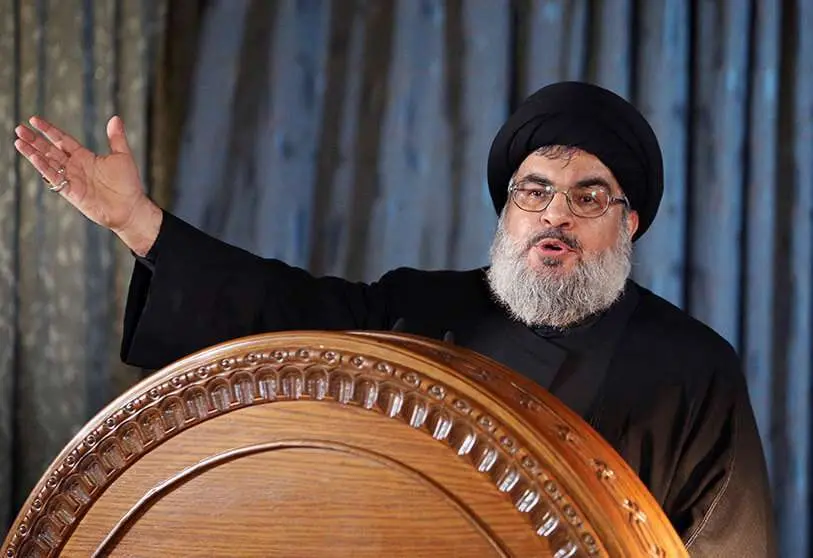Hezbollah recognises Israel, according to opposition Kataeb party leader

The latest reactions to the agreement reached between Israel and Lebanon over their maritime border do justice to what has already been dubbed a "historic agreement". Kataeb Party leader Sami Gemayel has confirmed that the Iranian-backed Shia group Hezbollah has fully recognised Israel after announcing its approval of the agreement on the demarcation of the maritime border with its neighbouring country.
"One of the things we have in mind today is that Hezbollah fully recognised Israel, announced its approval of the agreement and moved ideologically to a new stage. We will see how it will deal with its public and cadres," Sami Geyamel posted on Twitter.
من الأشياء التي نحفظها اليوم هو ان حزب الله اعترف بإسرائيل بشكل كامل، فهو اعلن موافقته على الاتفاق وانتقل على الصعيد الايديولوجي الى مرحلة جديدة سنرى كيف سيتعاطي فيها مع جمهوره وكوادره.
— Samy Gemayel (@samygemayel) October 12, 2022
According to Lebanese opposition parties, Hezbollah's change of position is because the militias have become aware of Lebanon's economic situation and the only way to solve it: through oil and gas extraction in the Strategic Economic Zone. A possibility that both countries have already made real by accepting the latest draft of the US mediator, Amos Hochstein, which allows Lebanon to exploit the Qana gas field and Israel to do the same with the Karish field.
Hezbollah leader Hassan Nasrallah reiterated support for the maritime demarcation deal, which he described as a "national wedding" in a speech on Tuesday. "We said from the beginning that we support the state on the issue of Lebanese claims," the Shi'ite group's leader said.

Israel's reactions have been swift. "Hezbollah for the first time has changed its firm position, which prohibited negotiations with Israel", said Eyal Hulata, head of Israel's National Security Council and leader of the Israeli negotiating team.
Israeli Prime Minister Yair Lapid, speaking before the solemn speech, said that the agreement reached "removes the possibility of armed confrontation with Hezbollah". "Israel is not afraid of Hezbollah, but if it is possible to avoid a war, it is the government's responsibility to do so", Lapid added at a press conference in Jerusalem. Lapid's statement also included a serious warning that an attack on the Karish oil field, which is allocated to the Hebrew state in the agreement, would be an attack on Israel. "And we will not hesitate for a second to use force to defend," the prime minister said.

However, the agreement with Lebanon is not all glories. The historic pact is beginning to take its toll on the Hebrew government and to become a political weapon that is stirring up the electoral campaign with less than three weeks to go until the elections.
The first to use this weapon was the head of the opposition and former Prime Minister Benjamin Netanyahu. "This is a shameful historic capitulation to the threats of the terrorist group Hezbollah to attack Israel's Karish oil field. Hezbollah will use billions of dollars of gas money to arm itself with more missiles and shells against Israeli citizens," the Likud party leader lambasted.

Moreover, Lapid's decision that the deal cannot be voted on by the Israeli parliament has added to the opposition's arguments. Netanyahu's right-wing bloc has denounced the fact that an incumbent government that has lost its parliamentary majority cannot approve such an important pact during an election campaign, and even less so without the vote of the rest of the Knesset.
These accusations were echoed by the leader of the coalition's conservative bloc, Naftali Bennet, who admitted that it is "problematic" to sign such an important agreement with Lebanon before the elections. However, this did not detract from his support for the decision for reasons of security and urgency, especially considering that Lebanese President Michel Aoun leaves office on 31 October.
For his part, Yair Lapid considered the opposition's accusations to be "lying and poisonous propaganda far removed from reality". These statements reflect the political tension in Israel a few days before the Hebrews go to the polls for the fifth time since 2019.








